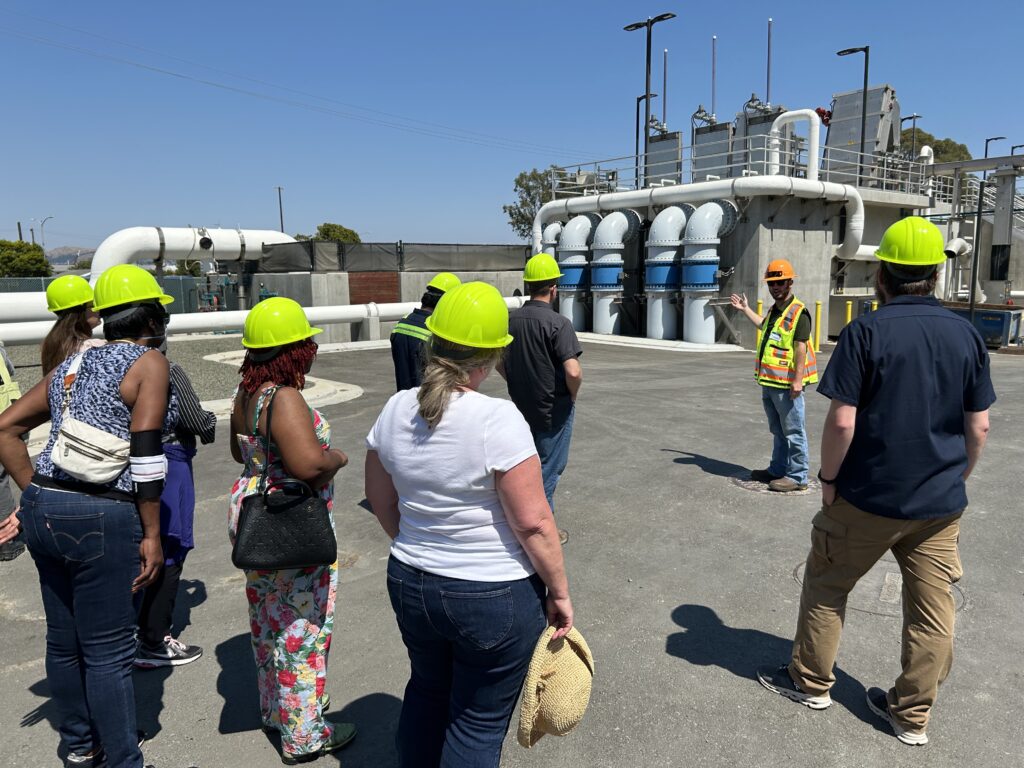Veolia North America has unveiled major upgrades to the Richmond Water Pollution Control Plant to the public, showcasing the results of a three-year, $40 million construction project that will improve wastewater treatment, environmental compliance and odor control for the city of Richmond and nearby communities on San Francisco Bay.

This new $40-million project improves wastewater treatment for San Francisco Bay and environmental compliance and odor control for the Richmond community (Source: Veolia North America)
Veolia has operated Richmond’s wastewater treatment plant for more than two decades, and the construction project marks a significant step forward in modernizing the plant’s ability to effectively treat the city’s wastewater and protect its environment. Veolia welcomed local community leaders and neighbors to the plant for an open house today to see the results of this work and to learn how this infrastructure investment will improve their surroundings.
“Veolia is proud to be a key partner to the city of Richmond as it continually improves its infrastructure and its resiliency for the future,” said Karine Rougé, CEO for Municipal Water at Veolia North America, who attended the open house. “These vital improvements will make a significant impact in how the wastewater treatment plant functions in the community, by improving the quality of treated water released into San Francisco Bay, delivering more efficient operations to the city, and better controlling the odors produced by the wastewater treatment process.”
The wastewater system improvements are expected to provide additional environmental and financial benefits to Richmond, as more efficient equipment will require less energy and lower levels of chemical treatment to operate, reducing the city’s costs as well as its greenhouse gas emissions. These achievements exemplify the goals of Veolia’s global GreenUp strategy, which strives to lead the ecological transformation of the planet by accelerating water quality improvement, decarbonization and technological innovation. Some 61% of Americans are concerned that worsening climate conditions may result in a deterioration of their quality of life, according to Veolia’s Barometer of Ecological Transformation survey, and projects which respond to ecological threats while also addressing infrastructure needs help build long-term solutions for the environment and public health.
The Richmond Water Pollution Control Plant construction project replaced outdated or ineffective equipment used in major functions at the plant:
- Fine screens – Two new mechanical fine screens were installed to filter out trash, rags and other larger debris from the wastewater stream. This prevents that material from clogging pipes and pumps, and potentially polluting the San Francisco Bay.
- Vortex grit removal system – Grit and sand settles at the bottom of wastewater treatment tanks, where it can cause wear and tear on machinery. The new grit removal system allows those fine materials to be easily separated from wastewater.
- Biofilter – Gases released by the wastewater treatment process are captured and forced through a new filtration system. Many layers of porous materials in the biofilter promote the growth of specialized microorganisms that break down the odor-causing compounds.
- Blower building – a new structure holds powerful mechanical turbo blowers, which ingest outside air that is diffused into wastewater to promote the treatment process.
- Aeration basins – a new system in the bottom of wastewater treatment tanks diffuses air into the water as fine bubbles, rather than the previous mechanical mixing system. These fine bubble diffusers are more consistent, efficient and resilient than the prior system.
The completion of this construction project marks another milestone for Veolia’s partnership with Richmond, in which Veolia is responsible for operating and maintaining the city’s wastewater treatment plant, sewer system and stormwater collection system. Since the partnership began in 2002, the city’s environmental performance has improved significantly.